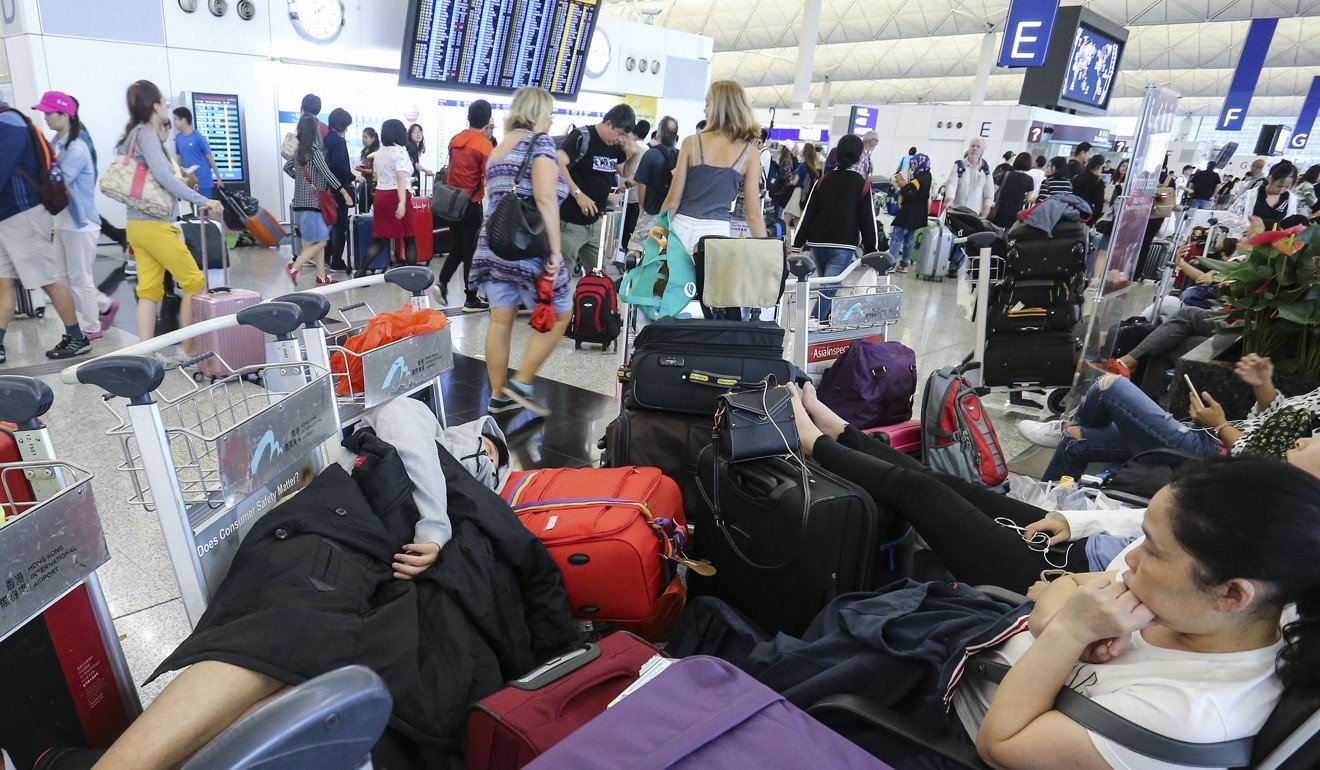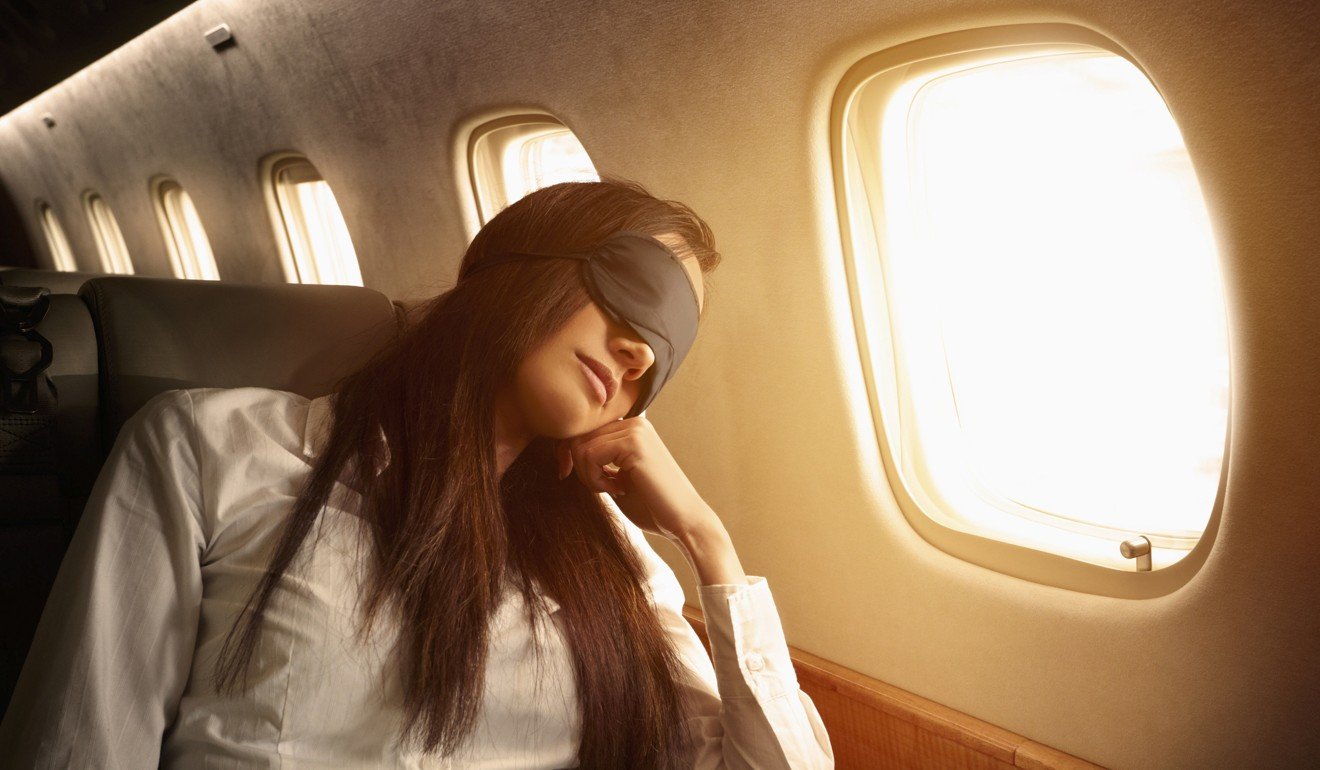
Sleepless and bone-weary from air travel? Here’s how to fight off jet lag
The bane of every frequent flier takes a physical and emotional toll. City Weekend explores remedies to battle the drain of hopping across time zones

Hongkongers are known for their wanderlust and jetting off for getaways on long weekends. With the Easter break round the corner, most of the city’s residents are no doubt eyeing their coming holidays, planned way in advance.
But with the flow of travellers seeking respite from the frantic confines of their home turf, there is also an influx of visitors to the city, which is a favourite stopover destination for foreigners.
According to annual air traffic rankings from the Airports Council International, Hong Kong International Airport was the eighth busiest airport in the world in 2016.

In 2017, 72.9 million passengers passed through the city’s air hub, with another 6.13 million in January 2018 alone. The airport itself is a bustling aviation nexus with over 100 airlines servicing flights to more than 220 destinations worldwide.
With so much travel in their blood, those who come in and out of the city may be acutely aware of the toll on the human body that flying brings – jet lag.
How can we bounce back from exhaustion that comes with hours in the air and ridiculous time zone differences? City Weekend explores jet lag and its remedies.
What is jet lag?
Feeling like 10am is 10pm, waking up at three in the morning and being unable to go back to sleep, or being absolutely unable to rest at night. If you’ve flown to faraway places, you should be no stranger to the annoying period of adjustment that comes with hops across time zones.
Peculiarly enough, travelling eastward, for example, from New York to Hong Kong, results in more severe effects because the day will appear longer when the traveller “loses” time. Northward or southward travel within the same time zone may be less problematic.
Jet lag, also called flight fatigue or desynchronosis, is temporary insomnia and exhaustion that stems from a change in a person’s internal body clock, or circadian rhythm. Biologically, jet lag is a de-synchronisation of human activity and our brain cells.
Effects of jet lag
As a result of sleeplessness and physical exhaustion, jet lag can cause headaches or a feeling of heaviness, insomnia, lethargy and irritability. The change in time zones can also create a loss of appetite, brought on by the body’s fatigue and its sense that meals are not being eaten at the right hour. Adjusting to changing time zones can also disrupt a woman’s menstrual cycle.
The effects of jet lag may vary across ages, but severe, long-term impacts are rare. The physical stress of jet lag may stimulate pre-existing heart conditions and stir up chronic pains, but these effects are limited to predisposed individuals.
Ultimately, the most damaging result of jet lag is its mental or emotional toll – it’s impossible to feel alert and energised when the body and mind are drained. Fatigue can then affect moods, making people more irritable for instance.
Prevention and recovery
Ways to reduce the dreaded effects of jet lag include avoiding alcohol and excess caffeine, as well as changing sleeping patterns gradually in anticipation of travel.
Many people resort to sleeping aids to coax their bodies into a much-needed deep slumber. Sleeping pills do not fix the biological imbalances that provoke jet lag, but they can alleviate short-term sleeplessness. Instead of resorting to medication however, simple things – such as selecting more comfortable flight times or staying hydrated – can help.
According to the World Health Organisation, consuming caffeine or alcohol before or after flying may worsen the symptoms of jet lag. Both substances are known to cause dehydration and an increased need to urinate, which can further disrupt sleep.
While some sleepy-eyed travellers may seek a cuppa after stepping off the plane, excess caffeine can further confuse the body by falsely stimulating energy levels.
And even though a glass of wine before bed may just be the thing to fix sleeplessness after a bone-weary flight, the quality of sleep may be lower, and a potential hangover coupled with jet lag can be a double whammy the next day.

While up in the air, moving around on a plane is a good way to guard against suffering from jet lag later. Walking around the aisles every one or two hours and avoiding sleep that lasts more than two hours has two benefits. Firstly, the potential of developing a blood clot from the pressures brought on by a lack of mobility is reduced. Secondly, even slight activity can revitalise the body and mind, throw off stiffness and bring about a sense of alertness that can ward off symptoms of jet lag.